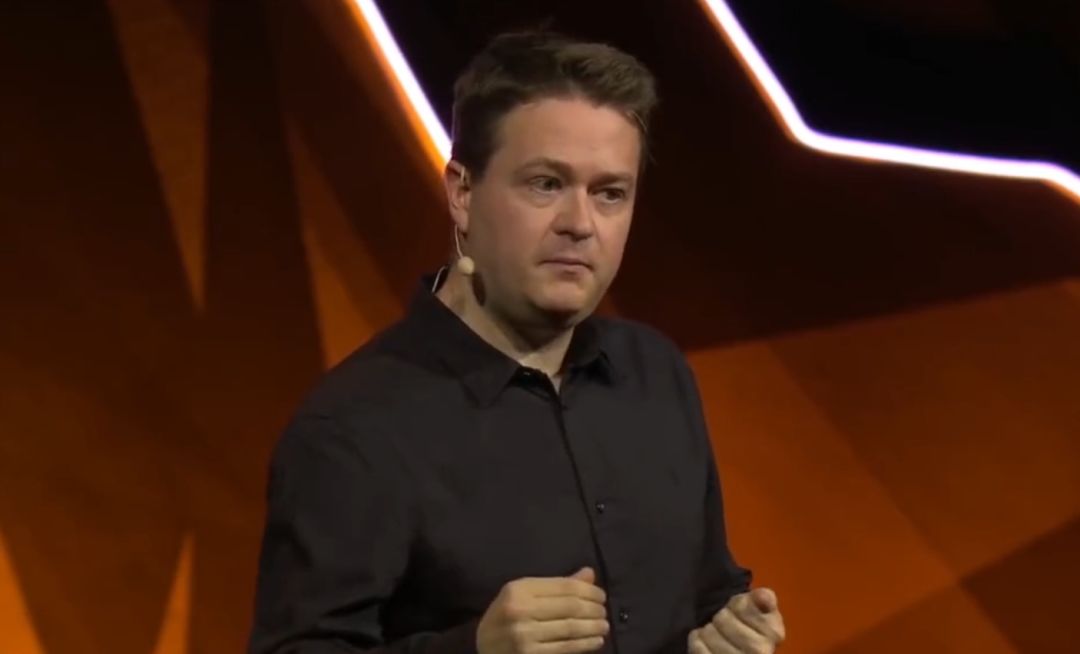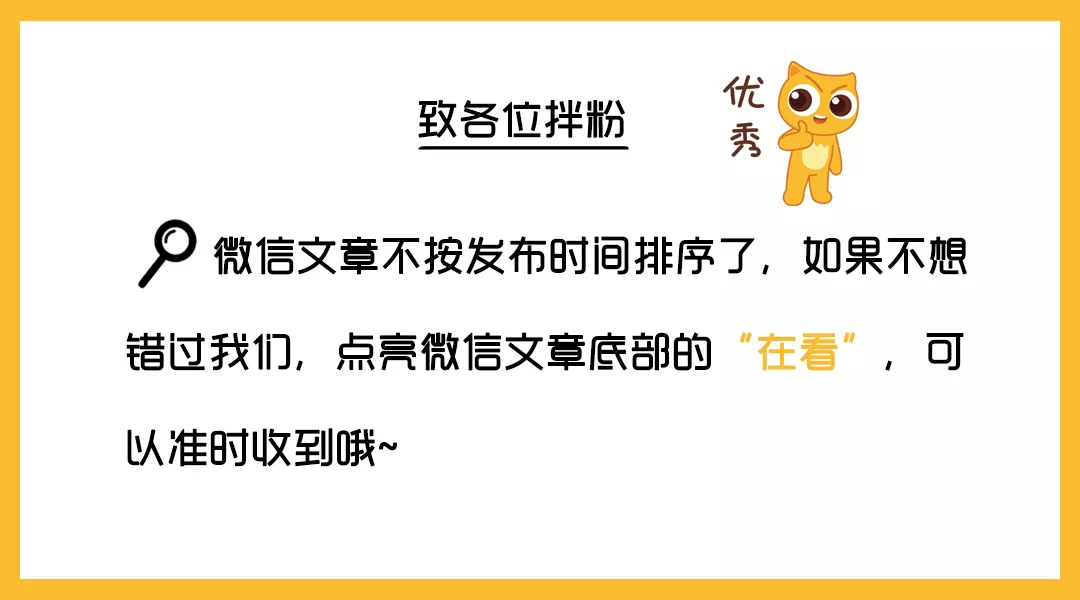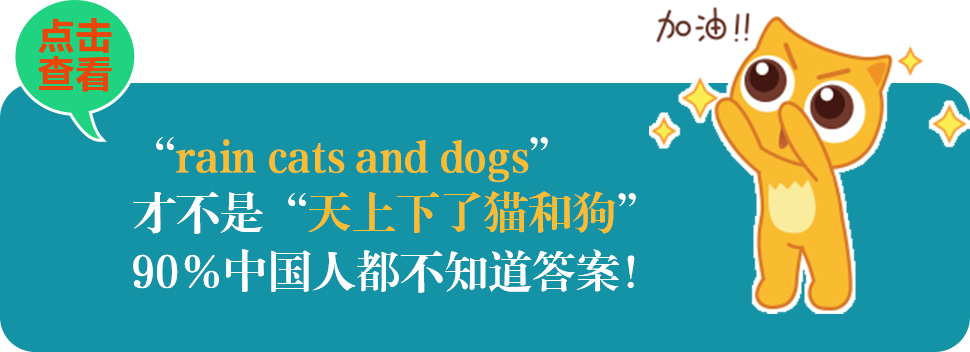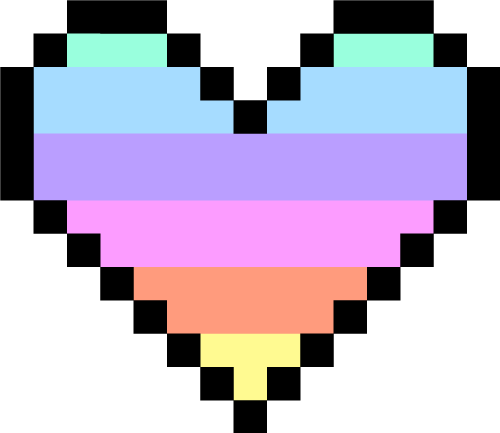Ted.. ¿Por qué te sientes ansioso y deprimido? (Vale la pena echar un vistazo)

A veces, una vida acelerada hace que cada vez más personas se sientan estresadas y propensas a la ansiedad.Muchas personas sienten que puedes deshacerte de tu tristeza y vivir una buena vida comprando y presumiendo, pero esto sólo te hará más propenso a deprimirte.
Este presentador de TEDJohann HariCon su propia experiencia personal, vale la pena ver por qué desarrollamos ansiedad y depresión y cómo superarla。

Temas:¿Por qué te sientes ansioso y deprimido?
Introducción a la presentación:Johann Hari
For a really long time, I had two mysteries that were hanging over me.
Ha habido dos misterios que me han perseguido.
I didn't understand them and, to be honest, I was quite afraid to look into them.
No puedo entenderlos, y para ser honesto, tengo miedo de profundizar en ellos.
The first mystery was, I'm 40 years old, and all throughout my lifetime, year after year,
El primer misterio es que tengo 40 años, y en mi vida, año tras año,
serious depression and anxiety have risen, in the United States, in Britain, and across the Western world.
En los Estados Unidos, Gran Bretaña y otros países están surgiendo síntomas graves de depresión y ansiedad, que arrasen con el mundo occidental.
And I wanted to understand why. Why is this happening to us?
Quiero averiguar por qué. ¿Por qué nos está empezando a pasar esto?
Why is it that with each year that passes, more and more of us are finding it harder to get through the day?
¿Por qué a más y más de nosotros nos ha parecido más difícil pasar cada día en cada uno de los últimos años?
And I wanted to understand this because of a more personal mystery.
Quiero entender esto porque es un misterio muy personal.
When I was a teenager, I remember going to my doctor and explaining that I had this feeling, like pain was leaking out of me.
Cuando tenía 10 años, recuerdo haber acudí al médico una vez y dije que siempre me dolía.
I couldn't control it, I didn't understand why it was happening, I felt quite ashamed of it.
No puedo controlarlo, no entiendo por qué sucede, y estoy muy avergonzado.
And my doctor told me a story that I now realize was well-intentioned, but quite oversimplified.
El doctor me contó una historia que ahora me doy cuenta de que está bien intencionada, pero es demasiado simplista.
Not totally wrong. My doctor said, "We know why people get like this.
No todo está mal. Mi médico dijo: "Sabemos por qué la gente hace esto".
Some people just naturally get a chemical imbalance in their heads -- you're clearly one of them.
El cerebro de algunas personas naturalmente tiene algunos desequilibrios químicos - obviamente eres uno de ellos.
All we need to do is give you some drugs, it will get your chemical balance back to normal."
Todo lo que tenemos que hacer es darle un poco de medicina y restaurará su equilibrio químico de nuevo a la normalidad. "
So I started taking a drug called Paxil or Seroxat, it's the same thing with different names in different countries.
Así que empecé a tomar parrostina o algo así. Una cosa tiene un nombre diferente en diferentes países.
And I felt much better, I got a real boost. But not very long afterwards, this feeling of pain started to come back.
Entonces me sentí mucho mejor y me animó mucho.Pero poco después, el dolor volvió.
So I was given higher and higher doses until, for 13 years, I was taking the maximum possible dose that you're legally allowed to take.
Así que utilicé una dosis más alta y más alta hasta los próximos 13 años, cuando estaba tomando la dosis más alta permitida por la ley.
And for a lot of those 13 years, and pretty much all the time by the end, I was still in a lot of pain.
Durante la mayor parte de estos 13 años, casi hasta el final, todavía estaba sufriendo.
And I started asking myself, "What's going on here? Because you're doing everything you're told to do by the story that's dominating the culture -- why do you still feel like this?"
Empecé a preguntarme: "¿Qué está pasando aquí?" "Porque haces todo lo que dices en la cultura dominante, ¿por qué sigues sintiendo eso?"
So to get to the bottom of these two mysteries, for a book that I've written I ended up going on a big journey all over the world, I traveled over 40,000 miles.
Así que para resolver estos dos misterios, para un libro que escribí, fui en un viaje alrededor del mundo de más de 40.000 millas.
I wanted to sit with the leading experts in the world about what causes depression and anxiety and crucially,
Quiero sentarme con expertos de clase mundial para discutir qué causa la depresión y la ansiedad, y lo más importante:
what solves them, and people who have come through depression and anxiety and out the other side in all sorts of ways.
¿Cuáles son las curas y cómo las personas que han experimentado depresión y ansiedad salen de diversas maneras?
And I learned a huge amount from the amazing people I got to know along the way.
He aprendido mucho a lo largo del camino de la gente increíble que conozco.
But I think at the heart of what I learned is, so far, we have scientific evidence for nine different causes of depression and anxiety.
Pero creo que lo más importante que he aprendido es que hasta ahora, la evidencia científica ha demostrado que hay nueve causas diferentes de depresión y ansiedad.
Two of them are indeed in our biology. Your genes can make you more sensitive to these problems, though they don't write your destiny.
Dos de ellos se deben a factores fisiológicos. Tus genes te harán más sensible a estos problemas, aunque no determinarán tu destino.
And there are real brain changes that can happen when you become depressed that can make it harder to get out.
Cuando te deprimes, tu cerebro cambia de sustancia, lo que hace más difícil para ti deshacerte de ella.
But most of the factors that have been proven to cause depression and anxiety are not in our biology. They are factors in the way we live.
Pero la mayoría de los factores que se ha demostrado que causan depresión y ansiedad no tienen nada que ver con nuestra fisiología.Depende principalmente de nuestra forma de vida.
And once you understand them, it opens up a very different set of solutions that should be offered to people alongside the option of chemical antidepressants.
Una vez que los entienda, puede abrir un conjunto muy diferente de soluciones que se deben ofrecer a las personas con antidepresivos químicos.
For example, if you're lonely, you're more likely to become depressed.
Por ejemplo, si te sientes solo, es probable que te deprimas.
If, when you go to work, you don't have any control over your job, you've just got to do what you're told, you're more likely to become depressed.
Si, cuando estás en el trabajo, no tienes control sobre tu trabajo, y tienes que hacer lo que se te dice que hagas, es más probable que te deprimas.
If you very rarely get out into the natural world, you're more likely to become depressed.
Si tienes poca exposición al mundo natural, es más probable que te deprimas.
And one thing unites a lot of the causes of depression and anxiety that I learned about. Not all of them, but a lot of them.
Una cosa es vincular toda la depresión y la ansiedad que conozco. No todos, pero mucho.
Everyone here knows you've all got natural physical needs, right? Obviously.
Todos aquí saben que todos ustedes tienen necesidades fisiológicas naturales, ¿verdad? Obviamente.
You need food, you need water, you need shelter, you need clean air.
Necesitas comida, necesitas agua, necesitas refugio, necesitas aire limpio.
If I took those things away from you, you'd all be in real trouble, real fast.
Si tomo esas cosas, todos estarán en grandes problemas muy rápido.
But at the same time, every human being has natural psychological needs. You need to feel you belong.
Pero al mismo tiempo, todo el mundo tiene una necesidad psicológica natural, necesitas tener un sentido de pertenencia.
You need to feel your life has meaning and purpose. You need to feel that people see you and value you.
Necesitas sentir que tu vida tiene sentido y propósito. Necesitas sentir que la gente se preocupa por ti y te valora.
You need to feel you've got a future that makes sense. And this culture we built is good at lots of things.
Necesitas sentir que tienes un futuro significativo. La cultura que construimos es buena en muchas cosas.
And many things are better than in the past -- I'm glad to be alive today.
Muchas cosas son mucho mejores de lo que solían ser - Estoy feliz de vivir hoy.
But we've been getting less and less good at meeting these deep, underlying psychological needs.
Pero cada vez somos menos buenos para satisfacer estas profundas necesidades psicológicas.
And it's not the only thing that's going on, but I think it's the key reason why this crisis keeps rising and rising. And I found this really hard to absorb.
Esa no es la única razón, pero creo que es la razón clave de la creciente crisis.Me cuesta entenderlo.
I really wrestled with the idea of shifting from thinking of my depression as just a problem in my brain, to one with many causes, including many in the way we're living.
Estoy realmente enredado en la idea de transformar mi depresión de sólo un problema en mi cerebro a uno que tiene muchas causas, incluyendo nuestra forma de vida.
And it only really began to fall into place for me when one day, I went to interview a South African psychiatrist named Dr. Derek Summerfield.
No fue hasta que un día fui a entrevistar a un psiquiatra sudafricano llamado Derek Summerfield, que realmente entendí.
He's a great guy. And Dr. Summerfield happened to be in Cambodia in 2001, when they first introduced chemical antidepressants for people in that country.
Es un gran tipo. En 2001, Samofield estuvo en Camboya, donde introdujeron por primera vez antidepresivos químicos.
And the local doctors, the Cambodians, had never heard of these drugs, so they were like, what are they?
Los médicos camboyanos locales nunca habían oído hablar de los medicamentos, así que preguntaron: "¿Qué son estos?" "
And he explained. And they said to him, "We don't need them, we've already got antidepressants." And he was like, "What do you mean?"
Así que explicó. Entonces le dijeron: "No los necesitamos, ya tenemos antidepresivos". Preguntó: "¿De qué estás hablando?" "
He thought they were going to talk about some kind of herbal remedy, like St. John's Wort, ginkgo biloba, something like that. Instead, they told him a story.
Pensó que hablarían de algún tipo de hierba, como la hierba de San Juan, ginkgo biloba, etc. En vez de eso, le contaron una historia.
There was a farmer in their community who worked in the rice fields.
Un agricultor de su comunidad está trabajando en un campo de arroz.
And one day, he stood on a land mine left over from the war with the United States, and he got his leg blown off.
Un día, pisó una mina dejada por la Guerra de la Resistencia contra los Estados Unidos, y su pierna fue volada.
So they him an artificial leg, and after a while, he went back to work in the rice fields.
Así que le pusieron una prótesis encima, y pronto volvió a trabajar en los campos de arroz.
But apparently, it's super painful to work under water when you've got an artificial limb, and I'm guessing it was pretty traumatic to go back and work in the field where he got blown up.
Pero obviamente duele trabajar bajo el agua con tu pierna protésica, y supongo que debe ser doloroso para él volver al trabajo donde le volaron la pierna.
The guy started to cry all day, he refused to get out of bed, he developed all the symptoms of classic depression.
El hombre comenzó a llorar todo el día, se negó a levantarse de la cama, y desarrolló todos los síntomas típicos de la depresión.
The Cambodian doctor said, "This is when we gave him an antidepressant." And Dr. Summerfield said, "What was it?" They explained that they went and sat with him.
"Ahí fue cuando le dimos antidepresivos", dijo el médico camboyano. El Dr. Summerfield preguntó: "¿Qué tipo de medicina es?" Me explicaron que solían sentarse con él.
They listened to him. They realized that his pain made sense -- it was hard for him to see it in the throes of his depression, but actually, it had perfectly understandable causes in his life.
Lo escucharon. Se dieron cuenta de que su dolor estaba justificado - le costaba verlo en medio de la depresión, pero era, de hecho, una razón que era perfectamente comprensible en su vida.
One of the doctors, talking to the people in the community, figured,
Uno de los médicos y la gente de la comunidad habló y pensó,
"You know, if we bought this guy a cow, he could become a dairy farmer, he wouldn't be in this position that was screwing him up so much, he wouldn't have to go and work in the rice fields."
"Si compramos a este hombre una vaca, puede convertirse en un granjero lechero, no estará en esta situación, estará en un lío así, que no tendrá que trabajar en los campos de arroz."
So they bought him a cow. Within a couple of weeks, his crying stopped, within a month, his depression was gone.
Así que le compraron una vaca. A las pocas semanas, dejó de llorar, y en un mes, su depresión había desaparecido.
They said to doctor Summerfield, "So you see, doctor, that cow, that was an antidepressant, that's what you mean, right?"
Summerfield, "Así que mire, doctor, esa vaca, es antidepresivos, ¿no es eso de lo que está hablando?" "
If you'd been raised to think about depression the way I was, and most of the people here were, that sounds like a bad joke, right? "I went to my doctor for an antidepressant, she gave me a cow."
Si piensas en la depresión como yo cuando eres joven, como la mayoría de la gente aquí, eso suena como una broma fría, ¿verdad? "Fui al médico por antidepresivos y me dio una vaca. "
But what those Cambodian doctors knew intuitively, based on this individual, unscientific anecdote,
Pero las anécdotas no científicas que los camboyanos conocen intuitivamente, basadas en este individuo,
is what the leading medical body in the world, the World Health Organization, has been trying to tell us for years, based on the best scientific evidence.
Es la institución médica líder en el mundo, la Organización Mundial de la Salud, durante muchos años, basada en la mejor evidencia científica, ha estado tratando de decirnos.
If you're depressed, if you're anxious, you're not weak, you're not crazy, you're not, in the main, a machine with broken parts.
Si estás deprimido, si estás ansioso, no eres vulnerable, no estás loco, en general, no eres una máquina rota,
You're a human being with unmet needs. And it's just as important to think here about what those Cambodian doctors and the World Health Organization are not saying.
Eres una persona no sesedada. Aquí, es tan importante pensar en lo que dicen los médicos camboyanos tanto como la Organización Mundial de la Salud no dice.
They did not say to this farmer, "Hey, buddy, you need to pull yourself together. It's your job to figure out and fix this problem on your own."
No le dijeron al granjero: "Oye, hombre, tienes que animarte, tienes que arreglar y arreglar esto tú mismo". "
On the contrary, what they said is, "We're here as a group to pull together with you, so together, we can figure out and fix this problem."
En su lugar, dicen: "Estamos trabajando con usted como equipo, así que juntos podemos solucionar y solucionar este problema". "
This is what every depressed person needs, and it's what every depressed person deserves.
Eso es lo que toda persona deprimida necesita, y es lo que toda persona deprimida se merece.
This is why one of the leading doctors at the United Nations, in their official statement for World Health Day, couple of years back in 2017,
Es por eso que un médico de las Naciones Unidos escribió en la declaración oficial para el Día Mundial de la Salud 2017,
said we need to talk less about chemical imbalances and more about the imbalances in the way we live. Drugs give real relief to some people -- they gave relief to me for a while --
Deberíamos hablar menos de los desequilibrios químicos y más de los desequilibrios en nuestra forma de vida. Las drogas tienen un efecto real de remisión en algunas personas - también son efectivas para mí por un tiempo -
but precisely because this problem goes deeper than their biology, the solutions need to go much deeper, too.
Pero debido a que el problema no va más allá de su estructura biológica, la solución tiene que ir más allá.
But when I first learned that, I remember thinking, "OK, I could see all the scientific evidence, I read a huge number of studies,
Pero cuando supe por primera vez, recuerdo haber pensado: "Puedo ver toda la evidencia científica, leí mucha investigación,
I interviewed a huge number of the experts who were explaining this," but I kept thinking, "How can we possibly do that?"
Entrevisté a muchos expertos para explicar el problema, "pero seguí pensando: "¿Cómo podemos hacer eso?". "
The things that are making us depressed are in most cases more complex than what was going on with this Cambodian farmer. Where do we even begin with that insight?
Las cosas que nos hacen deprimirnos son en muchos casos mucho más complicadas que las del agricultor camboyano. Basándonos en ese punto de vista, ¿por dónde empezamos?
But then, in the long journey for my book, all over the world, I kept meeting people who were doing exactly that, from Sydney, to San Francisco, to Sao Paulo.
Pero luego, durante mi largo viaje para escribir libros, conocí gente haciendo eso en todo el mundo, desde Sídney hasta San Francisco y Sao Paulo.
I kept meeting people who were understanding the deeper causes of depression and anxiety and, as groups, fixing them.
Siempre he conocido a personas que entienden las causas subyacentes de la depresión y la ansiedad, y, como grupo, las arreglan.
Obviously, I can't tell you about all the amazing people I got to know and wrote about, or all of the nine causes of depression and anxiety that I learned about,
Obviamente, no puedo decirte a todas estas personas increíbles que conozco y escribo, o todas las nueve causas de depresión y ansiedad que he aprendido,
because they won't let me give a 10-hour TED Talk -- you can complain about that to them.
Porque no me dejan hablar de TED de 10 horas, puedes quejarte con ellos.
But I want to focus on two of the causes and two of the solutions that emerge from them, if that's alright. Here's the first.
Pero si puedo, quiero centrarme en dos razones, y las dos soluciones correspondientes. Este es el primero.
We are the loneliest society in human history. There was a recent study that asked Americans,
Estamos en la sociedad más solitaria de la historia de la humanidad. Un estudio reciente preguntó a los estadounidenses
"Do you feel like you're no longer close to anyone?" And 39 percent of people said that described them. "No longer close to anyone."
"¿Ya no te sientes cerca de nadie?" Treinta y nueve por ciento dijo que la descripción coincidía con ellos. "Ya no cerca de nadie."
In the international measurements of loneliness, Britain and the rest of Europe are just behind the US, in case anyone here is feeling smug.
El Reino Unido y otros países europeos son el segundo lugar sólo por de los Estados Unidos en la Encuesta Internacional de Soledad. Por si acaso hay complaciente aquí.
I spent a lot of time discussing this with the leading expert in the world on loneliness,
Paso mucho tiempo comunicándome con expertos de clase mundial en soledad.
an incredible man named professor John Cacioppo, who was at Chicago, and I thought a lot about one question his work poses to us.
Un hombre muy bueno, el profesor John Cachiopo, estaba en Chicago, y su trabajo nos dio una pregunta en la que pensé durante mucho tiempo.
Professor Cacioppo asked, "Why do we exist? Why are we here, why are we alive?" One key reason is that our ancestors on the savannas of Africa were really good at one thing.
El profesor Kachiopo preguntó: "¿Por qué existimos?" ¿Por qué estamos aquí, por qué estamos vivos? "Una razón clave es que nuestros antepasados en la sabana africana eran realmente buenos en una cosa.
They weren't bigger than the animals they took down a lot of the time, they weren't faster than the animals they took down a lot of the time,
No son más altos que los animales que ponen muchas veces, no corren más rápido que los animales que ponen muchas veces,
but they were much better at banding together into groups and cooperating. This was our superpower as a species --
Pero son mejores abrazando y colaborando. Esta es nuestra habilidad como especie.
we band together, just like bees evolved to live in a hive, humans evolved to live in a tribe.
Nos unimos, así como las abejas evolucionaron para vivir en colmenas, y los seres humanos evolucionaron para vivir en comunidades tribales.
And we are the first humans ever to disband our tribes. And it is making us feel awful. But it doesn't have to be this way.
Y fuimos los primeros humanos en disolver la tribu. Nos hace sentir mal. Pero ese no es necesariamente el caso.
One of the heroes in my book, and in fact, in my life, is a doctor named Sam Everington. He's a general practitioner in a poor part of East London, where I lived for many years.
En mi libro, también soy un héroe en mi vida, un doctor llamado Sam Ellington. Es un GENERAL en el área de Gh del Este de Londres, donde he vivido durante muchos años.
And Sam was really uncomfortable, because he had loads of patients coming to him with terrible depression and anxiety.
Sam no es fácil, porque muchos pacientes vienen a él con depresión severa y ansiedad.
And like me, he's not opposed to chemical antidepressants, he thinks they give some relief to some people. But he could see two things.
Como yo, no tiene ninguna objeción al uso de antidepresivos, que cree que tienen un efecto de remisión en algunas personas. Pero podía ver dos cosas.
Firstly, his patients were depressed and anxious a lot of the time for totally understandable reasons, like loneliness.
En primer lugar, sus pacientes a menudo están deprimidos y ansiosos por razones bien entendidas, como la soledad.
And secondly, although the drugs were giving some relief to some people, for many people, they didn't solve the problem. The underlying problem.
En segundo lugar, Aunque la droga puede traer un poco de alivio a algunas personas. Para la mayoría de la gente, no resuelven el problema, el problema fundamental.
One day, Sam decided to pioneer a different approach. A woman came to his center, his medical center, called Lisa Cunningham. I got to know Lisa later.
Un día, Sam decidió comenzar un enfoque diferente. Una mujer vino a su centro médico, Lisa Cunningham. No lo supe hasta más tarde.
And Lisa had been shut away in her home with crippling depression and anxiety for seven years.
Lisa estuvo aislada de su casa durante siete años debido a la depresión severa y la ansiedad.
And when she came to Sam's center, she was told, "Don't worry, we'll carry on giving you these drugs, but we're also going to prescribe something else.
Cuando llegó al centro de Sam, le dijeron: "No te preocupes, seguiremos dándote estas píldoras, pero haremos otra cosa".
We're going to prescribe for you to come here to this center twice a week to meet with a group of other depressed and anxious people,
Tienes que venir a este centro dos veces por semana para conocer a otras personas con depresión y ansiedad,
not to talk about how miserable you are, but to figure out something meaningful you can all do together so you won't be lonely and you won't feel like life is pointless."
No se trata de lo infeliz que eres, se trata de encontrar algo significativo que puedas hacer juntos para que no te sientas solo o que la vida no tenga sentido.
The first time this group met, Lisa literally started vomiting with anxiety, it was so overwhelming for her.
Cuando estas personas se conocieron, Lisa estaba tan ansiosa que empezó a vomitar porque era estresante para ella.
But people rubbed her back, the group started talking, they were like, "What could we do?" These are inner-city, East London people like me, they didn't know anything about gardening.
Pero la gente empezó a darle masajes y el grupo empezó a hablar: "¿Qué podemos hacer?" "Estas son personas como yo que viven en los barrios bajos del este de Londres y no saben cómo jardinear.
They were like, "Why don't we learn gardening?" There was an area behind the doctors' offices that was just scrubland. "Why don't we make this into a garden?"
"¿Por qué no estudiamos jardinería?" Hay un arbusto en la parte trasera del consultorio del médico. "¿Por qué no lo convertimos en un jardín?"
They started to take books out of the library, started to watch YouTube clips. They started to get their fingers in the soil. They started to learn the rhythms of the seasons.
Así que empezaron a pedir prestados libros de la biblioteca y a ver videos de YouTube. Empezaron a poner sus manos en la tierra. Empezaron a aprender las melodías de las cuatro estaciones.
There's a lot of evidence that exposure to the natural world is a really powerful antidepressant. But they started to do something even more important.
Numerosos estudios han demostrado que la exposición al mundo natural es un antidepresivo muy eficaz. Pero empezaron a hacer algo más importante. Empezaron a formar tribus.
They started to form a tribe. They started to form a group. They started to care about each other.
Empezaron a formar equipos. Empezaron a preocuparse el uno por el otro.
If one of them didn't show up, the others would go looking for them -- "Are you OK?" Help them figure out what was troubling them that day.
Si uno de ellos no aparece, los otros buscarán - "¿Estás bien?" "Ayúdalos a salir de los problemas que tuvieron ese día."
The way Lisa put it to me, "As the garden began to bloom, we began to bloom."
Como Lisa me dijo: "A medida que florecen las flores en el jardín, comenzamos a florecer". "
This approach is called social prescribing, it's spreading all over Europe. And there's a small,
Este método, conocido como prescripción social, se está extendiendo por toda Europa. Hay una pequeña,
but growing body of evidence suggesting it can produce real and meaningful falls in depression and anxiety.
Pero cada vez hay más evidencia de que puede aliviar realmente y significativamente la depresión y la ansiedad.
And one day, I remember standing in the garden that Lisa and her once-depressed friends had built -- it's a really beautiful garden --
Un día, recuerdo estar de pie en un jardín construido por Lisa y sus amigos una vez deprimidos - era un hermoso jardín.
and having this thought, it's very much inspired by a guy called professor Hugh Mackay in Australia.
Se me ocurrió esta idea, inspirada en gran medida por el profesor Hugh McKay de Australia.
I was thinking, so often when people feel down in this culture, what we say to them -- I'm sure everyone here said it, I have -- we say, "You just need to be you, be yourself."
Estaba pensando en lo que le dijimos a la gente cuando estaban frustrados en esta cultura - estoy seguro de que todos aquí dijeron eso, y dije, "Sólo tienes que ser tú mismo, ser tú mismo". "
And I've realized, actually, what we should say to people is, "Don't be you. Don't be yourself. Be us, be we. Be part of a group."
Me he dado cuenta de que, de hecho, deberíamos decirle a la gente: "No seas tú mismo, no seas tú mismo". Hagámoslo juntos. Sé parte del equipo. "
The solution to these problems does not lie in drawing more and more on your resources as an isolated individual --
La solución a estos problemas es no pensar en más recursos como individuos aislados
that's partly what got us in this crisis. It lies on reconnecting with something bigger than you.
Esa es parte de la razón de nuestra inmersión en esta crisis. Se trata de reconectar con algo más grande que nosotros.
And that really connects to one of the other causes of depression and anxiety that I wanted to talk to you about.
Esa es otra causa de la que quiero hablarte, depresión y ansiedad.
So everyone knows junk food has taken over our diets and made us physically sick. I don't say that with any sense of superiority, I literally came to give this talk from McDonald's.
Así que todo el mundo sabe que la comida chatarra se ha apoderado de nuestra dieta y nos ha hecho mal. No estoy diciendo esto con un sentido de superioridad, acabo de ir a McDonald's antes de dar mi discurso.
I saw all of you eating that healthy TED breakfast, I was like no way.
Veo el tipo de desayuno saludable de TED que todos comen, y no lo comeré.
But just like junk food has taken over our diets and made us physically sick, a kind of junk values have taken over our minds and made us mentally sick.
Pero así como la comida chatarra se ha apoderado de nuestra dieta y nos ha hecho mal, también hay una especie de valor basura que se ha apoderado de nuestras mentes y nos ha enfermado mentalmente.
'
For thousands of years, philosophers have said, if you think life is about money, and status and showing off, you're going to feel like crap.
Los filósofos han dicho durante miles de años que si piensas que la vida se trata de dinero, estatus y presumir, te sientes como un desperdicio.
That's not an exact quote from Schopenhauer, but that is the gist of what he said.
Estas no son las palabras originales de Schopenhian, pero este es el punto de lo que dijo.
But weirdly, hardy anyone had scientifically investigated this, until a truly extraordinary person I got to know,
Pero curiosamente, pocas personas lo estudiaron hasta que conocí a un hombre maravilloso,
named professor Tim Kasser, who's at Knox College in Illinois, and he's been researching this for about 30 years now.
El profesor Tim Casser de Knox College, Illinois, ha estado trabajando en el tema por más de 30 años.
And his research suggests several really important things. Firstly, the more you believe you can buy and display your way out of sadness,
Su investigación revela varias cosas muy importantes. En primer lugar, cuanto más crees que puedes deshacerte del dolor comprando y presumiendo,
and into a good life, the more likely you are to become depressed and anxious.
Vivir una buena vida te hace más propenso a deprimirte y sentirte ansioso.
And secondly, as a society, we have become much more driven by these beliefs. All throughout my lifetime, under the weight of advertising and Instagram and everything like them.
En segundo lugar, como sociedad, estamos cada vez más impulsados por estas creencias. Toda mi vida, he estado bajo el peso de la publicidad, Instagram y cosas por el que se parece.
And as I thought about this, I realized it's like we've all been fed since birth, a kind of KFC for the soul.
Cuando lo pensé, me di cuenta de que era como si nuestras almas estuvieran siendo alimentadas como KFC al nacer.
We've been trained to look for happiness in all the wrong places, and just like junk food doesn't meet your nutritional needs and actually makes you feel terrible,
Estamos entrenados para buscar la felicidad en los lugares equivocados, así como la comida chatarra no satisface sus necesidades nutricionales y en realidad te hace sentir mal.
junk values don't meet your psychological needs, and they take you away from a good life.
El valor basura no puede satisfacer sus necesidades espirituales, pero quitarle su buena vida.
But when I first spent time with professor Kasser and I was learning all this, I felt a really weird mixture of emotions. Because on the one hand, I found this really challenging.
Cuando conocí a Cassel, aprendí todas estas cosas. Estoy realmente en la intersección de los sentimientos. Porque por un lado, creo que es realmente difícil.
I could see how often in my own life, when I felt down, I tried to remedy it with some kind of show-offy, grand external solution.
A menudo puedo ver mi vida, y cada vez que caigo, trato de arreglarla con algunas soluciones ostentosas, grandes externas.
And I could see why that did not work well for me. I also thought, isn't this kind of obvious? Isn't this almost like banal, right?
Puedo ver por qué eso no funciona muy bien para mí. Pensé, ¿no es obvio? ¿No es anticuado?
If I said to everyone here, none of you are going to lie on your deathbed and think about all the shoes you bought and all the retweets you got,
Si les dijera a todos ustedes aquí que los que no estarían en la cama moribunda, pensando en cuántos pares de zapatos compraron y cuántos retweets recibieron,
you're going to think about moments of love, meaning and connection in your life. I think that seems almost like a cliché.
Se trata de recordar los momentos de amor, significado y conexión en tu vida. Creo que parece un cliché.
But I kept talking to professor Kasser and saying, "Why am I feeling this strange doubleness?" And he said, "At some level, we all know these things.
Pero seguí hablando con el profesor Cassel y le dije: "¿Por qué tengo esta extraña sensación doble?" "En cierto modo, todos sabemos de estas cosas.
But in this culture, we don't live by them." We know them so well they've become clichés, but we don't live by them.
Pero en esta cultura, no vivimos de ellos. "Los conocemos tan bien que se convierten en clichés, pero no vivimos de ellos.
I kept asking why, why would we know something so profound, but not live by it?
Sigo preguntándome por qué, ¿por qué sabemos que algo es importante, pero no vives de ellos?
And after a while, professor Kasser said to me, "Because we live in a machine that is designed to get us to neglect what is important about life."
Después de un tiempo, el Dr. Cassel me dijo: "Debido a que vivimos en una máquina, está diseñado para hacernos ignorar las cosas más importantes de la vida". "
I had to really think about that. "Because we live in a machine that is designed to get us to neglect what is important about life."
Realmente tengo que pensarlo. "Debido a que vivimos en una máquina, está diseñado para hacernos ignorar las cosas más importantes de la vida".
And professor Kasser wanted to figure out if we can disrupt that machine. He's done loads of research into this;
El profesor Cassel quiere saber si podemos vencer a la máquina. Hizo mucha investigación al respecto.
I'll tell you about one example, and I really urge everyone here to try this with their friends and family.
Les diré un ejemplo, y realmente insto a todos aquí a probar esto con amigos y familiares.
With a guy called Nathan Dungan, he got a group of teenagers and adults to come together for a series of sessions over a period of time, to meet up.
Junto con Nathan Dungan, le pedí a un grupo de adolescentes y adultos que asistieran a una serie de reuniones y se conocieran durante un período de tiempo.
And part of the point of the group was to get people to think about a moment in their life they had actually found meaning and purpose.
Parte del propósito de este grupo es traer de vuelta momentos en sus vidas que realmente se sintieron significativos y con propósito.
For different people, it was different things. For some people, it was playing music, writing, helping someone -- I'm sure everyone here can picture something, right?
Diferentes personas piensan en cosas diferentes. Para algunas personas, es tocar música, escribir, ayudar a otros - Estoy seguro de que todos aquí pueden pensar en algo, ¿verdad?
And part of the point of the group was to get people to ask, "OK, how could you dedicate more of your life to pursuing these moments of meaning and purpose,
Parte del propósito de este grupo es hacer que la gente pregunte: "Bueno, ¿cómo puedes pasar más tiempo en tu vida persiguiendo estos momentos significativos y con propósito,
and less to, I don't know, buying crap you don't need, putting it on social media and trying to get people to go, 'OMG, so jealous!'"
Y compra menos basura que no necesites, publíquela en las redes sociales y trata de hacer que la gente diga: "¡Mi mamá, es odio!" "
And what they found was, just having these meetings, it was like a kind of Alcoholics Anonymous for consumerism, right?
Lo que encontraron fue que fue sólo a través de estas reuniones, era un poco como una fiesta de bebidas anónimas consumistas, ¿verdad?
Getting people to have these meetings, articulate these values, determine to act on them and check in with each other, led to a marked shift in people's values.
Conseguir que las personas participen en estas reuniones, articulen estos valores y decidan tomar medidas para monitorearse mutuamente ha llevado a un cambio significativo en los valores de las personas.
It took them away from this hurricane of depression-generating messages training us to seek happiness in the wrong places, and towards more meaningful and nourishing values that lift us out of depression.
Los aleja de los huracanes que nos entrenan en los lugares equivocados para encontrar la felicidad y producir depresión, hacia uno más significativo y nutritivo que nos saca del valor de la depresión.
But with all the solutions that I saw and have written about, and many I can't talk about here, I kept thinking, you know: Why did it take me so long to see these insights?
Pero todas las soluciones que he visto y escrito, mucho de lo que no puedo hablar aquí, me he estado preguntando, ¿por qué me tomó tanto tiempo ver estas ideas?
Because when you explain them to people -- some of them are more complicated, but not all -- when you explain this to people, it's not like rocket science, right?
Porque cuando se los explicas a la gente -algunas cosas son más complicadas, pero no todas- cuando se las explicas a la gente, no es necesariamente el caso, ¿verdad?
At some level, we already know these things. Why do we find it so hard to understand? I think there's many reasons.
En cierto modo, ya sabemos estas cosas. ¿Por qué nos cuesta entenderlo? Creo que hay muchas razones aquí.
But I think one reason is that we have to change our understanding of what depression and anxiety actually are.
Pero creo que hay una razón por la que tenemos que cambiar nuestra percepción de depresión y ansiedad.
There are very real biological contributions to depression and anxiety.
La depresión y la ansiedad tienen causas biológicas muy reales.
But if we allow the biology to become the whole picture, as I did for so long, as I would argue our culture has done pretty much most of my life,
Pero si dejamos que la biología sea la única explicación, como he hecho durante mucho tiempo, creo que nuestra cultura ha estado en el trabajo durante la mayor parte de mi vida,
what we're implicitly saying to people is, and this isn't anyone's intention, but what we're implicitly saying to people is, "Your pain doesn't mean anything.
Lo que le decimos implícitamente a la gente es que esto no es lo que nadie quiso decir, pero lo que implícitamente le decimos a la gente es: "Tu dolor no significa nada".
It's just a malfunction. It's like a glitch in a computer program, it's just a wiring problem in your head."
Es sólo un fracaso. Como un fallo en un programa de computadora, es sólo un problema de cableado en tu cabeza. "
But I was only able to start changing my life when I realized your depression is not a malfunction. It's a signal. Your depression is a signal. It's telling you something.
Pero no fue hasta que me di cuenta de que la depresión no era un problema que yo era capaz de empezar a cambiar mi vida. Es una señal. Tu depresión es una señal. Te está diciendo algo.
We feel this way for reasons, and they can be hard to see in the throes of depression -- I understand that really well from personal experience.
Hay una razón por la que nos sentimos así, y es difícil verlos en el dolor de la depresión - en lo que respecta a mi experiencia personal, lo entiendo.
But with the right help, we can understand these problems and we can fix these problems together.
Pero con la ayuda adecuada, podemos entender estos problemas y trabajar juntos para solucionarlos.
But to do that, the very first step is we have to stop insulting these signals by saying they're a sign of weakness, or madness or purely biological, except for a tiny number of people.
Pero para hacer esto, el primer paso es dejar de insultar estas señales, diciendo que son señales débiles, locas o puramente fisiológicas, excepto por unas pocas personas.
We need to start listening to these signals, because they're telling us something we really need to hear.
Necesitamos escuchar estas señales porque nos dice lo que realmente necesitamos escuchar.
It's only when we truly listen to these signals, and we honor these signals and respect these signals,
Sólo cuando realmente escuchamos estas señales, prestamos atención a ellas, y las respetamos,
that we're going to begin to see the liberating, nourishing, deeper solutions. The cows that are waiting all around us.
Veremos soluciones que son liberadoras, nutritivas y profundas. Las vacas nos están esperando.
Thank you.
Gracias.
Remark:Todos los derechos e intereses son propiedad de TED, más información relacionada con TED se puede acceder en el sitio web oficial www.ted.com información!

Los beneficios de hoy
(Identifique el código QR en la figura)
El cómic de gramática es un regalo de 99 copias
"Comer a través" de la gramática inglés de la manera más interesante
Seleccionar debe aprender puntos gramaticales, entender más a fondo, promoción de sincronización oral

Recomendaciones anteriores





Más por venir"Leer el texto original"
Dame una pequeña flor a la derechamua~

Ir a "Descubrimiento" - "Echa un vistazo" navegar "Amigos están viendo"